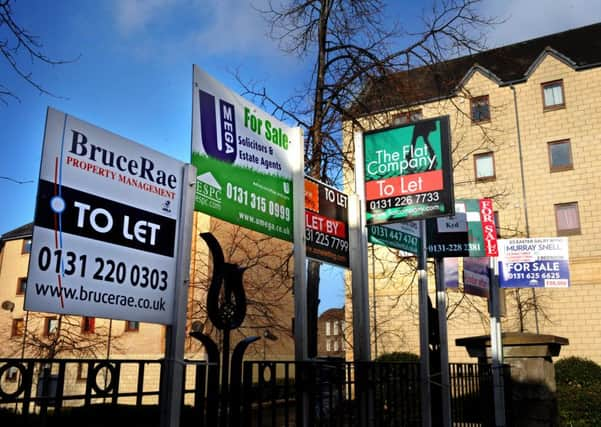Brexit worries and new tax not stifling Edinburgh property sales


Latest figures show Edinburgh with the highest volume of house sales in Scotland and property prices rising more than anywhere else on the mainland.
One estate agent said the average selling time across the city was 21-22 days, but in places like Marchmont, Abbeyhill and Haymarket houses were often snapped up within a fortnight.
Advertisement
Hide AdAdvertisement
Hide AdAnd he voiced surprise that neither the economic uncertainty following the Brexit vote nor the increase in land and buildings transaction tax (LBTT) for second homes and buy-to-let properties seemed to have dented the market.
The UK House Price Index, which uses data from the Registers of Scotland, showed Edinburgh property prices leaping 11.7 per cent – from £215,796 to £240,978 – between June last year and June this year.
That compares with an average increase of 4.6 per cent in house prices across Scotland and 8.7 per cent across the UK.
And the Capital also recorded the highest volume of sales in Scotland with 745 properties sold in the city in April, compared with 715 in Glasgow and 268 in Aberdeen.
Advertisement
Hide AdAdvertisement
Hide AdDavid Marshall, operations director at Edinburgh estate agent Warners, said the figures from Registers of Scotland were “very much in line” with what his firm was seeing.
“Properties coming on to the market are selling very quickly,” he said. “In most cases properties are spending less than three weeks on the market, and there are even some areas where the average selling time is less than two weeks. Although there are always exceptions in any market, most properties are currently attracting interest from multiple buyers.
“This allows sellers to set closing dates where buyers are motivated to submit their best offer if they want to secure the home and, as a result, a significant majority of homes are achieving a price that is equal to or above the Home Report valuation.”
He said the market was the strongest he had seen since late 2007, before the credit crunch. Mr Marshall said anticipation of the LBTT rise had seen a spike in transactions ahead of its introduction on April 1, but there had been no significant fall afterwards.
Advertisement
Hide AdAdvertisement
Hide AdHe added: “It doesn’t seem to have massively affected the market, which is a surprise.”
And he said there had been no serious tail-off in demand following the Brexit vote.
“In the week or two after the vote fewer properties were coming on the market, but that bounced back,” he said.
“As we learn more about the terms of exit, we might start to a drop-off in activity, but up to now that’s not what we’ve seen.”